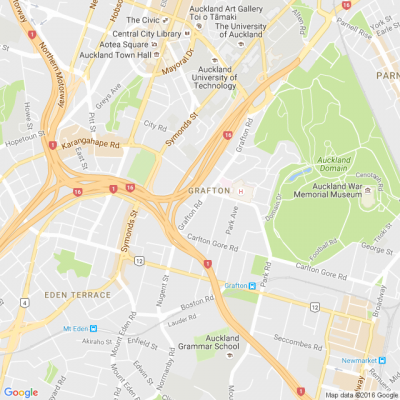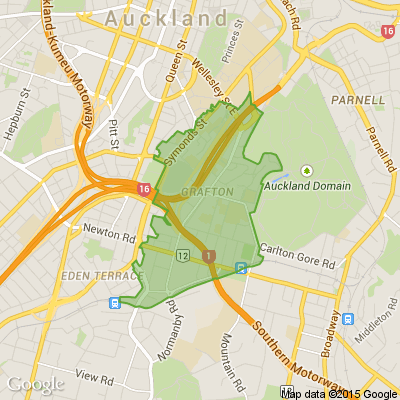Signs to Signal or Words to Instruct?
There are many forms of communication that are identifiable to all species. For the sake of this article I will call them expressions (of self preservation).
Some of these expressions have a common colour or symbol perhaps, that is used across species to repel or attract attention. As human beings have evolved, so have the forms of communication in either written or symbolic form. Which form reverberates with identifying a message the most remains to be debated - a sign or a word/s, or a combination of both? Identity has long been associated with attachment. The Japanese, for example, Nissan: 日産 Of all the Japanese automakers, aside from those based on their founder’s names, the meaning of “Nissan” is perhaps the simplest of them all. The kanji 日 “ni” means “sun,” which also happens to be the first character in Nihon 日本 “Japan,” which is why we refer to Japan as the land of the rising sun.The second kanji 産 “san” means “production.” A little creative contraction, and the Japanese pronunciation “ni-san” literally means “made in Japan.” The Nike brand, with its distinct V-shaped logo, quickly became regarded as a status symbol in modern urban fashion and hip-hop fashion due to its association with success in sport. The Golden Arches of McDonalds is a symbol associated with food choice.
Red - Stop. Green - Go. Regardless of how this instruction is given, the attachment to the colour is understood for what it means. The order of the colours (Red at the top, amber between and green at the bottom, in New Zealand) alerts even colourblind people as the order of the lit colour determines the required action. Some lights have both colour to instruct as well as animation to back up the meaning.
There is the saying when one is angry 'to seeing red'. How often have you seen a person give a verbal order as well as become flushed? Red is a prompt to stop and/or listen. Amber is a warning to proceed with caution. Green (like blue) encourages flow. Thankfully I haven't turned blue yet. A raised hand to stop, a waving hand to go. Dogs have been trained to understand different hand and/or voice commands to assist for various purposes, horses trained to voice, hand and leg aids. bulls to charge red flags. Why a species associates colour/form, sound or movement with an instruction can be inherant or learnt behaviour. Signals like smoke are associated with danger and pollution. With all the signs/signals and colours to alert us to danger and/or safety, the most alarming fact is that regardless of what form/shape or noise that pollution is broadcast to us on, we ignore the signals and/or words that ask us to stop. We are putting ourselves and other species at risk by not ceasing proven negative business activities.
With our businesses, we listen to what our bottom line is telling us, to decide what action to take, whether to diminish or grow. Our businesses can only exist if we take notice and act on signs and listen to instructions. Let us treat the planet in the same way we want our businesses to flourish. Our existance is not through our businesses. Our businesses are existing due to generations of self preservation for all species that exist on it.
www.tempdirect.nz...

Poll: Do you think NZ should ban social media for youth?
The Australian Prime Minister has expressed plans to ban social media use for children.
This would make it illegal for under 16-year-olds to have accounts on platforms including TikTok, Instagram, Facebook and X.
Social media platforms would be tasked with ensuring children have no access (under-age children and their parents wouldn’t be penalised for breaching the age limit)
.
Do you think NZ should follow suit? Vote in our poll and share your thoughts below.

-
85.2% Yes
-
13.8% No
-
1% Other - I'll share below
Ego & Arrogance Causes a Mighty Fall (Day - 2)
In a lush forest known as Greenvale, there was a powerful lion named Rudo. Rudo was the undisputed king of the forest. Tall and strong, with a magnificent golden mane, he ruled the animals with an iron paw. His roars echoed through the forest, a reminder to every creature that Rudo was the ultimate ruler. But as time went on, his pride grew, and so did his arrogance. He dismissed the smaller animals and ignored the advice of his wise old advisor, an owl named Sable, who constantly urged him to rule with kindness and respect.
Meanwhile, in Greenvale’s quiet northern corner, a clever young fox named Finnegan had been growing popular. Unlike Rudo, Finnegan was not strong or fierce, but he was cunning, resourceful, and compassionate. He helped animals in need, shared food with the hungry, and listened to everyone, big or small. The animals in Greenvale admired him and trusted him more than they did the mighty Rudo.
One day, Finnegan cautiously approached Rudo to suggest a partnership. "Rudo, the animals are growing unhappy. They fear you, but they don’t respect you. If we work together, I believe we could make Greenvale thrive."
Rudo laughed scornfully. "Why would I need help from a lowly fox like you? Go back to your burrow before I remind you who rules here."
Hurt but undeterred, Finnegan left, determined to continue serving the animals in his own way. But Sable, the wise owl, had heard everything. She knew that Rudo’s pride would be his downfall if he didn’t change.
Soon, a drought hit Greenvale. Streams dried up, and food became scarce. The animals were growing weaker and desperate. Rudo, refusing to leave his pride aside, hoarded what little water remained, drinking from a secret pool known only to him. The other animals were left to fend for themselves, growing hungrier and angrier each day.
Finnegan, however, gathered a team of animals willing to work together. He instructed the beavers to dig deep channels to find hidden water and asked the birds to scout for fruits and nuts in distant areas. Slowly, the animals began to thrive under Finnegan’s leadership, sharing resources and surviving despite the drought.
Eventually, word spread through the forest that Finnegan’s coalition was thriving while Rudo’s group grew weaker. Even some of Rudo’s loyal followers began to join Finnegan, realizing that he offered them the kindness and collaboration they needed.
Days passed, and the once-mighty Rudo was now left with only a few supporters. Alone and desperate, he was forced to wander the forest, searching for food and water just as the smaller animals once had. One day, he encountered Sable, who hooted at him knowingly. "Remember, Rudo, strength without respect is meaningless. True power comes from earning the trust of others."
Humbled, Rudo approached Finnegan, his head lowered. "I was wrong, Finnegan. I let my pride cloud my judgment. Will you help me now?"
Finnegan nodded, extending a friendly paw. "The forest belongs to all of us, Rudo. Together, we can make it strong again."
With Finnegan’s guidance and the cooperation of all the animals, Greenvale flourished once more. Rudo learned to listen to others and treated the smallest animals with respect. In time, he regained his place in the forest hierarchy—not as a feared tyrant, but as a trusted leader.
From that day on, Rudo understood that even the mightiest can fall if they let arrogance guide them. And so, Greenvale became a forest where strength and wisdom walked paw-in-paw, and every creature learned the value of respect and humility.
Riddle Me This, Neighbours! Bet You Can’t Guess It!
Sometimes narrow, sometimes wide, wind or rain, I stay outside.
Even if there’s heat or snow, from house to house I will still go.
What am I?
Do you think you know the answer to our daily riddle? Don't spoil it for your neighbours! Simply 'Like' this post and we'll post the answer in the comments below at 2pm.
Want to stop seeing riddles in your newsfeed?
Head here and hover on the Following button on the top right of the page (and it will show Unfollow) and then click it. If it is giving you the option to Follow, then you've successfully unfollowed the Riddles page.







 Loading…
Loading…











